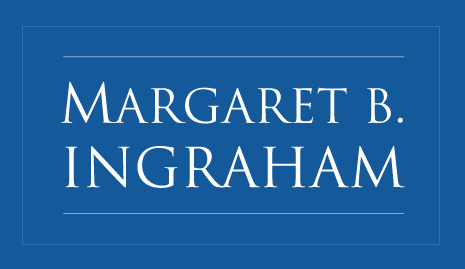The title of Dietrich Bonhoeffer’s marvelous monograph declares the Psalms “The Prayer Book of the Bible.” He is not the first, nor the last, to characterize the psalter that way. Many of us find the psalms to be an enduring prayer guide because these words of man addressed to God capture feelings we often find difficult to articulate and transform them into language to which we can relate and that we can use with ease. Yes, the psalms speak of our common needs in a universal, yet personal, tongue. Thus the psalms move us into a sacred place of communion with God where divine words — because the psalms are also the Word of God — and human speech find a perfect union of expression.
In those rare cases when the writer of a psalm is unknown, the particular poem is referred to as an “orphan” psalm. In most instances, however, the authors are identified in the psalms’ superscriptions. These descriptions, which frequently impart much more information than the name of the psalmist(s), are often virtually ignored by modern readers. But is it wise pass over them? I think not. These superscriptions can provide us with context that can inform our understanding. In fact, the compilers of the Sefer Tehillim considered these introductory notations so essential that they included them as part of the psalm and numbered them as verse 1. If we will read these introductory notations with care, then follow them to the passages elsewhere in the scripture to which they refer, and study those accounts in tandem with the poems, I believe the prayer book of the Bible can become a kind of prayer journal, a remarkable lens through which we can enter more intimately into the psalmist’s heart and mind.
 There is no better example with which to test this method than Psalm 51, David’s response “when Nathan the prophet went in to him, after he had gone in to Bathsheba.” That prophet-to-king meeting, as well as the heinous cover up of the illicit encounter and consequential murder that spawned that conversation, is described in lengthy detail in 2 Samuel 11 and 12. The majority of these chapters recounts well-known and often examined episodes in the story of David’s life.
There is no better example with which to test this method than Psalm 51, David’s response “when Nathan the prophet went in to him, after he had gone in to Bathsheba.” That prophet-to-king meeting, as well as the heinous cover up of the illicit encounter and consequential murder that spawned that conversation, is described in lengthy detail in 2 Samuel 11 and 12. The majority of these chapters recounts well-known and often examined episodes in the story of David’s life.
But there is another important element to this part of this story. As we look together at Psalm 51, I would like to focus our attention on a less frequently considered passage within those chapters, namely the episode presented in 2 Sam 12: 15-23. The prophet has just confronted David and the king has acknowledged and confessed his sin to Nathan, who has responded by delivering the shattering prophetic word to David — “. . .because by the deed you have utterly scorned the Lord, the child who is born to you shall die”– and departing (2 Sam 12:14).
The next nine verses, during which we initially encounter David prostrate and unresponsive before the bed of the dying infant, comprise what has always been for me one of the most heart-wrenching, tragic, hopeful, transparent, perplexing, revealing and enigmatic passages in all of the Old Testament. With that string of adjectives haven’t I just described an jumble of contradictory feelings? Can I really react with such conflicting responses all at once? Yes, I can and do every time I encounter the story. David’s own reaction, as we begin to see there and learn more about in the psalm, is similarly complex.
As David lies fasting and praying on the ground, the perplexed elders try to raise him. But he will not be moved, for he is resolutely seeking the Lord “on behalf of the child.” That is, he is imploring God to be gracious to him and save the child. When God does not, he gets up, washes and anoints himself, eats and then explains his actions to the confused men of his court by saying something to the effect that now that the child is dead, and he cannot bring him back, he must move on. But what does move on mean? Has David resolved his sin problem? Psalm 51 responds to that question with a resounding no.
The text provides us no time frame, but I assume that the psalm was written well after the death of the child. I base my conjecture on the structure of the psalm, which is meticulously and skillfully put down and conforms to the intricate verbal patterning typical of Hebrew poetry of David’s time. Composition like that is generally incompatible with deep emotional unrest. It is more likely a “spontaneous overflow of powerful feelings recollected in tranquility,” to borrow from Wordsworth’s definition of poetry.
The psalmist’s confessional plea is colored from the outset with his sense of remorse for his iniquity. He is still driven to seek the Lord. But this time the emphasis is different. What he seeks is not release from the consequences of his act (the please let the child live) but rather restoration of his relationship with God. Never once does he ask God why he took his son or even mention the child, for that matter. Never once does he lash out in anger against his Lord for his failure to answer his prayer. What continues to distress his spirit are those easily overlooked but most critical of Nathan’s words: “you have utterly scorned the Lord.” What concerns him is restoring the breach. His heart bears the full weight of his sin; his obvious grief and guilt perhaps even magnify it to the degree that might cause him to feel beyond redemption. Or so it seems. But the man after God’s heart does not succumb to despair. He knows His God and Who and What He is (I AM).
In our own spiritual lives, when we encounter grief, despair or guilt, it is the “seems” to which we are most vulnerable, by which we are most easily entrapped. But working our way through Psalm 51 along with the author, we can move to the “what is” of hope and faith. David does not achieve that in a single request for forgiveness nor find any instant comfort. To the contrary, he implores God again and again with a series of penitential entreaties: “have mercy on me; blot out my transgressions; wash me; cleanse me; I know my transgressions; against you…I have sinned and done what is evil; purge me; wash me [he repeats]; cast me not away; restore me; deliver me.” He is a man permeated with a sense of his own sinfulness and praying desperately to free himself from its grip. But he realizes too that he cannot free himself. Only He to whom the supplicant cries out can do that.
The great psalmist’s doubt, uncertainty, and temporary captivity to “the seems” is the kind that I have personally experienced at those times when I recognize the profound darkness that can lurk in my soul and the severity of offense against God that my own sins are. So as I pray, I ask over and over again with similar fervency for the forgiveness David seeks– and which he knows is his, because God has promised to bestow it on the contrite.
 Even as I ardently repeat my honest supplications, my faith sometimes hangs by a thread, to employ the familiar cliché, that feels poised to break. In my desperate need for assurance it often seems to me that the tether by which my heart is anchored to my father in heaven and to the deliverance He has prepared and by faith I can receive, is no stronger than a spider’s silk. But that should be a consoling image! The apparent fragility of the filament the spider spins disguises an underlying truth, for the tensile strength of the insect’s silk is five times that of steel. The tensile strength of God’s hold on His children, when they in penitence seek His face, is beyond both measure and fracture.
Even as I ardently repeat my honest supplications, my faith sometimes hangs by a thread, to employ the familiar cliché, that feels poised to break. In my desperate need for assurance it often seems to me that the tether by which my heart is anchored to my father in heaven and to the deliverance He has prepared and by faith I can receive, is no stronger than a spider’s silk. But that should be a consoling image! The apparent fragility of the filament the spider spins disguises an underlying truth, for the tensile strength of the insect’s silk is five times that of steel. The tensile strength of God’s hold on His children, when they in penitence seek His face, is beyond both measure and fracture.
Let us take our confidence from that and claim the certitude that David found in the immutable nature and promises of the “God of my salvation” (Ps 51:14).
We can forever say with David “The sacrifices of God are a broken spirit, a broken and contrite heart, O God, You will not despise” (Ps 51:17).
